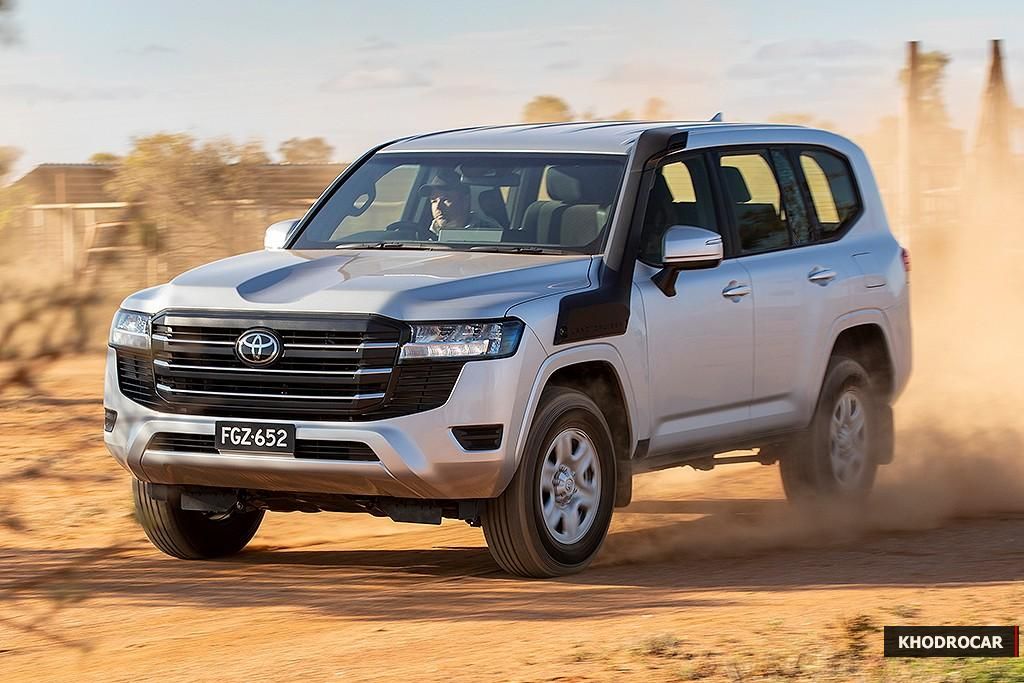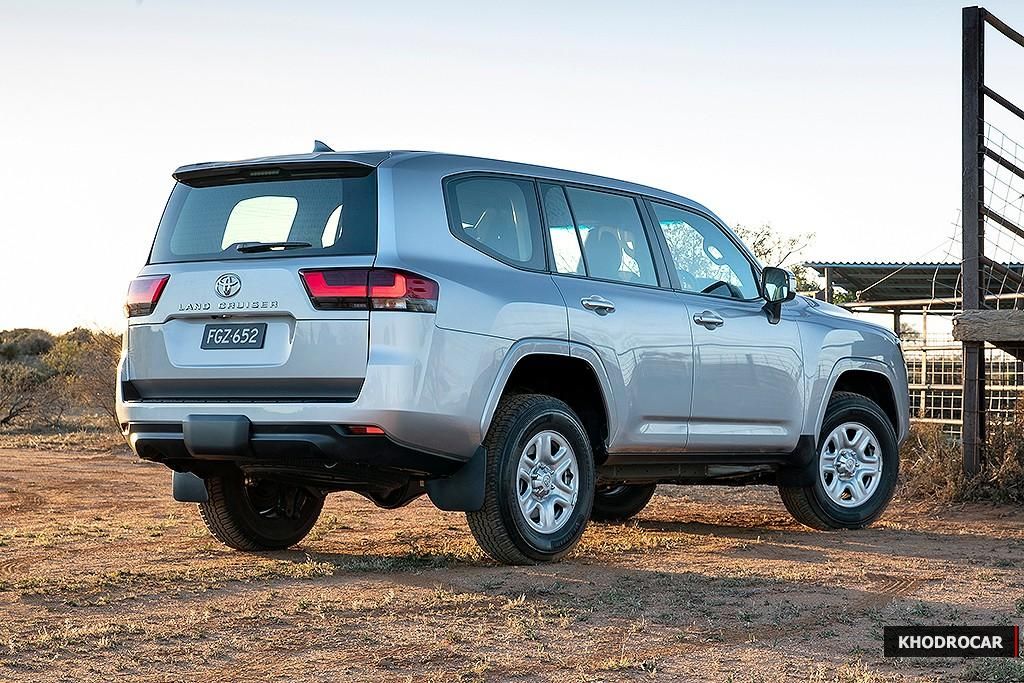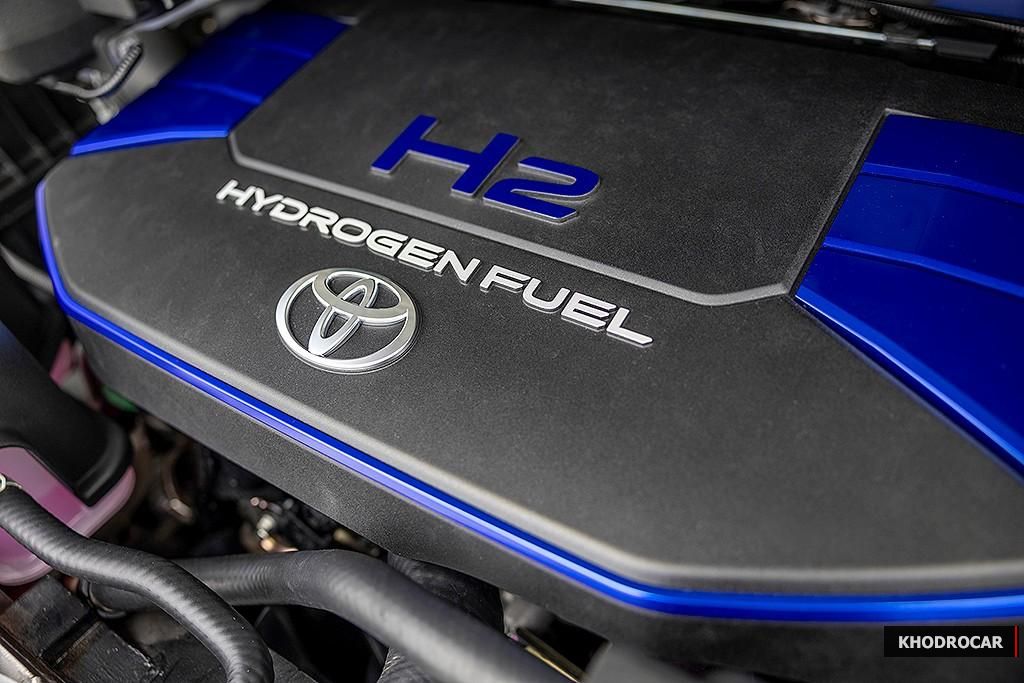Hydrogen Toyota LandCruiser 300 Series under study
Toyota confirms study of hydrogen-fuelled engine for LandCruiser as HiAce pilot program gets underway
Khodrocar - Toyota has confirmed that it is studying a broad range of vehicles as prospects for its ground-breaking new hydrogen-fuelled internal combustion engine (ICE) technology, including the Toyota LandCruiser 300 Series.
While Toyota unveiled an EV version of its legendary LandCruiser at the Tokyo motor show recently, the Japanese auto giant has now revealed that its iconic 4x4 off-road SUV could also be well suited to its new hydrogen ICE technology that will be deployed in a world-leading pilot trial in Australia with the Toyota HiAce van.

Speaking at this week’s global reveal of the Hydrogen HiAce in Melbourne, where the commercial pilot program kicks off later this month, Toyota’s global president of hydrogen projects Mitsumasa Yamagata said large SUVs, as well as utes such as HiLux and other commercial vehicles, were ideally suited to the ultra-low-emissions technology.
"Yes, there is a possibility to adapt [hydrogen ICE] into those vehicles including LandCruiser, as the advantage of this technology can be utilised for those vehicles, including high towing and high loading [requirements],” he said.

Three years in development, the Hydrogen HiAce is not a fuel-cell electric vehicle (FCEV) but instead uses a 3.5-litre twin-turbo petrol V6 – as found in the LandCruiser overseas (and the Australian-market 300 Series-based Lexus LX 600) – that’s modified to run on compressed hydrogen gas rather than diesel.
It follows other development programs involving hydrogen-fuelled eight-cylinder engines, and if the V6 commercial pilot project in Australia proves successful, the powertrain could make its way into a variety of Toyota models.
"We study other vehicles including LandCruiser,” said Yamagata.
"Including the adoption of that FCEV, we are studying which vehicles should have the suitable technology.
"We are studying which technology or powertrain would be suitable for each vehicle.

"For the powertrain option for LandCruiser, for example, we are now studying the suitability for the [hydrogen] usage so we haven’t decided that the H2 is the best option.”
Toyota Australia CEO Matthew Callachor added that a hydrogen combustion engine with virtually zero emissions was "one of the possibilities but it obviously requires significant engineering as well”.
There is the obvious issue of a lack of hydrogen refuelling infrastructure in Australia, but Yamagata also highlighted that hydrogen ICE brought many advantages over EV and even FCEV – including maintaining a 4x4’s off-road capabilities.
"I believe there is no challenges because again this H2 ICE is using the same conventional ICE technology which is very advantageous to that off-road usage as well,” he said.
"So that should be more advantageous than BEV or FCEV.”
Toyota Australia vice-president of sales and marketing, Sean Hanley, also pointed out that battery-powered EVs were still expensive and had several limitations – such as range and extended recharging times.
"And that’s the real critical, important fact here that by offering choice and offering compelling, affordable alternatives, you will in fact accelerate decarbonisation,” he said.
"And we know that hydrogen offers a whole lot of different benefits that BEV simply cannot offer right now the market.”
Toyota has also developed a hydrogen-fuelled version of its 1.6-litre three-cylinder petrol engine from the GR Yaris and GR Corolla hot hatches, in which it is using motorsport to stress-test the technology.
Quizzed over whether Toyota was now in the hydrogen hot seat and would play a leading role in fostering a hydrogen society, Yamagata’s response was humble.
"I can’t determine whether we are a leader but again we are accelerating the development maybe faster than the other car-makers. Again, we are utilising motorsports and then try that vehicle to run 24 hours,” he said.
Latest News


